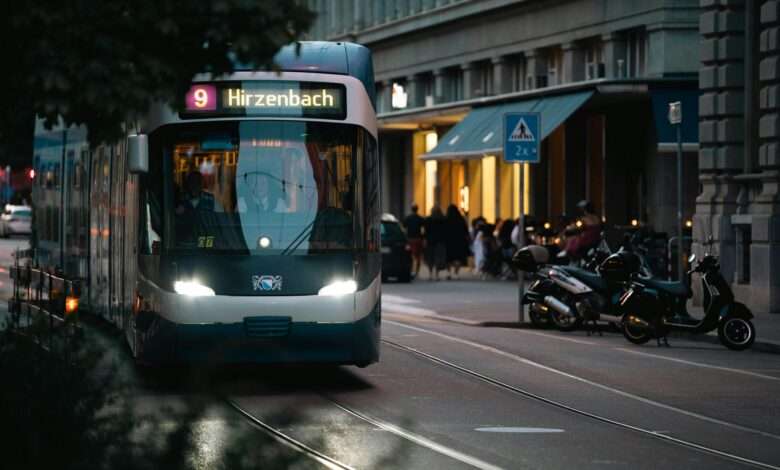The Cost of Commuting : Analyzing the Financial Impact of Daily Travel

Introduction :
In today’s fast-paced world, commuting has become an integral part of many people’s daily routines. However, understanding the cost of commuting goes beyond just the price of gas or public transport fares. This article explores the various financial implications associated with commuting, offering insights that can help individuals make informed decisions about their travel options.
Breaking Down The Cost of Commuting
Initial Expenses of Commuting
When considering The cost of commuting, the initial expenses can vary significantly based on the mode of transportation. For car owners, this includes not only the vehicle’s purchase price but also taxes, registration fees, and insurance premiums. Public transport users face monthly passes or per-ride fares that can accumulate quickly.
Cost Comparisons: Car vs. Public Transport
- Cars: Owning a vehicle can lead to substantial costs. On average, car owners spend thousands annually on insurance, maintenance, and fuel. The AAA estimates that the average cost of owning a car is about $9,500 per year.
- Public Transport: A monthly subway or bus pass might cost around $120, which can be significantly cheaper than owning a car, depending on the distance traveled. However, it can still add up over time, especially for frequent riders.
Fuel Costs: A Significant Factor
For those who drive, fuel costs play a major role in the cost of commuting. Gas prices fluctuate, but the average driver spends roughly $2,000 annually on fuel.
Strategies for Reducing Fuel Expenses
- Carpooling: Sharing rides with others can drastically reduce fuel costs.
- Efficient Driving: Adopting fuel-efficient driving habits, such as maintaining steady speeds and minimizing idling, can also help lower expenses.
Maintenance and Repair Costs
Regular Upkeep for Vehicles
Owning a car entails regular maintenance, which contributes to the cost of commuting. Basic services like oil changes, tire rotations, and brake inspections can add up over time. On average, car maintenance costs range from $500 to $1,000 annually.
Planning for Unexpected Repairs
It’s essential to set aside a budget for unexpected repairs, which can be costly. On average, drivers might encounter one major repair per year, costing between $500 and $1,500.
Public Transport Reliability: The Cost of Commuting
While public transport does not require maintenance costs from users, delays and service interruptions can indirectly affect commuters’ time and expenses. Ensuring that public transport is reliable is crucial for cost-effectiveness.
Time Is Money: The Hidden Costs of Commuting
Evaluating Time Spent Commuting
Beyond financial expenses, time is a crucial factor in the cost of commuting. Commuters spend, on average, one hour daily traveling to and from work. This time could be spent on productive activities or leisure, making it a valuable resource.
The Impact of Commute Length on Quality of Life
Long commutes can lead to increased stress, decreased job satisfaction, and even health issues. A study found that every additional 20 minutes spent commuting can lead to a 19% decrease in overall life satisfaction.
Flexible Work Options
Telecommuting and flexible work arrangements can mitigate both the time and financial costs of commuting. Many companies now offer remote work options, significantly reducing the cost of commuting for employees.
Parking Expenses: An Often Overlooked Cost
Understanding Parking Fees
For those who drive to work, parking can be a hidden expense that significantly impacts the cost of commuting. Daily parking fees can range from $10 to $30, depending on the city and location.
Alternatives to Paying for Parking
- Public Lots: Some areas offer more affordable public parking options.
- Park-and-Ride: Utilizing park-and-ride services can be a cost-effective way to reduce daily parking expenses.
Insurance Costs and Legal Considerations :
Evaluating Insurance Needs
Car insurance is a recurring cost that affects the cost of commuting. On average, drivers pay around $1,500 annually for insurance. The type of coverage selected can influence this figure.
Legal Aspects of Commuting
Understanding local traffic laws and insurance requirements is essential for drivers. Failing to adhere to these regulations can lead to fines, penalties, or increased insurance rates, further affecting commuting costs.
Environmental Considerations and Sustainability
The Hidden Environmental Costs of Commuting
The cost of commuting also includes environmental impacts. Car emissions contribute to air pollution and climate change, which can have long-term financial consequences for society as a whole.
Eco-Friendly Alternatives
- Public Transport: Utilizing buses or trains reduces individual carbon footprints.
- Biking or Walking: For short distances, biking or walking can save money and promote a healthier lifestyle.
Conclusion: Making Informed Commuting Choices
Understanding the cost of commuting is essential for anyone navigating the complexities of daily travel. By evaluating all associated expenses—including initial costs, maintenance, fuel, parking, and time—commuters can make informed choices that suit their lifestyle and budget.
This review has been prepared by V Aiotechnical.com, reflecting our commitment to providing insightful and well-researched content. Whether considering public transport, car ownership, or alternative commuting methods, being aware of the true costs can lead to better decisions and improved quality of life.





